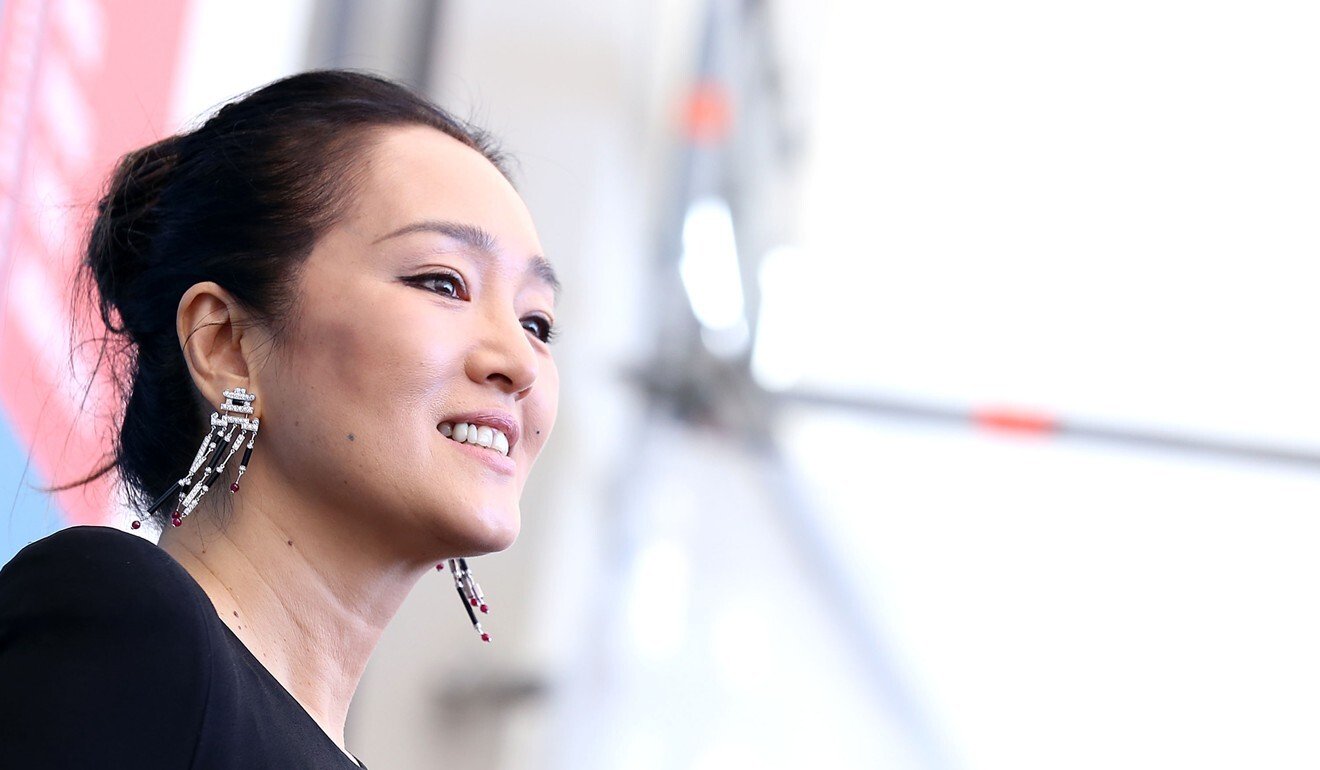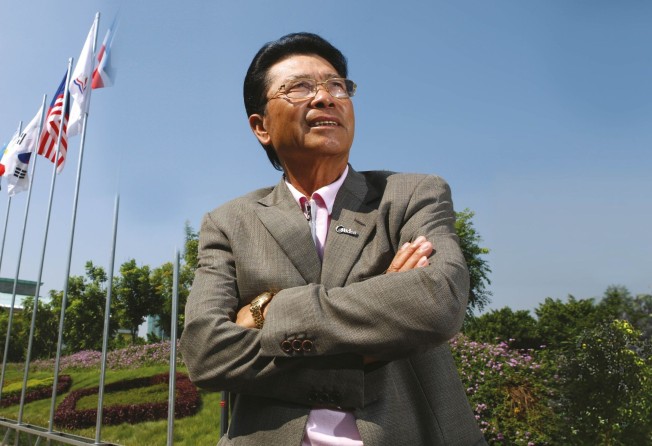
Midea’s billionaire founder He Xiangjian rescued after kidnappers armed with explosives broke into his luxury villa in Foshan, China
- The home appliance tycoon’s only son, 55-year-old He Jianfeng, was reported to have sneaked out of the villa and swum across a nearby river to call the police
- Video circulating on China’s social media showed a dozen police officers surrounding a European-style mansion decorated with white marble Roman columns after the break-in on Sunday

The Chinese billionaire founder of Midea Group, one of the world’s largest home appliance makers, has been rescued from kidnappers who broke into his luxury villa in southern China over the weekend.
He Xiangjian, 77, estimated to be worth US$25 billion and ranked the 6th richest person in China by Forbes, was abducted by kidnappers carrying explosives at his home in Foshan, in Guangdong province, local Chinese media reported.
His only son, 55-year-old He Jianfeng, was reported to have sneaked out of the villa and swum across a river next to it to call the police, according to online news website TMTPost.
Local police arrested five suspects at around 5am on Monday, and no one was hurt during the arrest, according to an official police statement.
“The victim, surnamed He, was safe,” the police said. Public security bureaus at the provincial, city and district levels all “paid high attention to the case after receiving the report, and quickly dispatched officers to rush to the site,” it said.
The police received a report at around 5.30pm on Sunday that outsiders had broken into a residence at Royal Orchid International Golf Villa, an upmarket project developed by Midea Group that includes an 18-hole golf course and sports centre. The 336-unit development is located in the Shunde district, about one kilometre from the company’s headquarters and an hour’s drive from the provincial capital of Guangzhou.
Confirming the incident, Midea Group thanked the police, media and all parties after reposting the police statement on its official account on Weibo, a Twitter-like social media platform.
In photos and videos circulating on China’s social media, a dozen police officers were seen surrounding a European-style, two-storey mansion decorated by white marble Roman columns at its front door and topped by a coral-bricked roof. A small river about five metres wide flows nearby the mansion.
Police placed a lockdown on the community, and residents were not allowed to leave from Sunday afternoon to Monday morning, according to several people living at the development. There were at least two security stations outside of He’s villa, which also has its own 24-hour security guard. Employees working at Midea’s headquarters were asked not to go to work on Monday, as the company conducted risk assessments.
"I was scared to some extent, after all I have always thought that the security here is better than in other neighbourhoods,” said one resident living there, who declined to provide his name.
The dramatic rescue has brought public attention to the stunning wealth of He, who has maintained a much lower profile than many of his tycoon peers, such as the country’s richest man, Jack Ma of Alibaba Group – which owns the South China Morning Post – and Pony Ma Huateng, founder of Tencent Holdings.
Like many first-generation entrepreneurs in China, He has humble roots. He started to build his Midea empire – now listed in Shenzhen with a market value of 419 billion yuan (US$59 billion) – from scratch when he was 26 years old.
He dropped out of school after graduating from primary school and worked in factories and on farms. Struggling to make ends meet in the economic backwater of Beijiao town in Foshan, where job opportunities were scarce, he came up with an idea to start a small production line.
In 1968, he led 23 local residents to raise 5,000 yuan and began to make plastic bottle caps, a risky venture over the next two decades as the government retained an ambivalent attitude towards private businesses. To save costs and guard against pickpocketing, he only drank sugar water for breakfast and slept in train stations when he went on business trips to marketplaces elsewhere in China, according to reports by local newspaper.
He experimented with many different products, including glass tubes, car accessories and power generators, before seizing on the growing trend of electric-fan production in the late 1970s. At that time, many Foshan emigrants to Hong Kong and Macau would bring back fans to their mainland relatives, making them a popular gift.
He named his fan factory Midea in 1981 and developed an all-plastic model in 1984, which helped the company establish a solid footing in the industry and start to produce air conditioners a year later. Another breakthrough came in 1988, when the company won permission to export its air conditioners to overseas markets, eventually achieving an impressive 120 million yuan worth of production that year.

In 2008 Midea hired Gong Li, one of China’s most famous movie stars as its ambassador, who appeared in a widely-known advertisement aired on China’s state broadcaster CCTV.
The company went public in Shenzhen in 1993 as the first township enterprise to be listed.
While He retired in 2012, his family still controls about a third of Midea. It also controls six other listed companies, including Midea Properties in Hong Kong and German robotics company Kuka.
Shares of Midea Group dropped 2.3 per cent to 58.61 yuan by the lunch break on Monday.
Additional reporting by Snow Xia